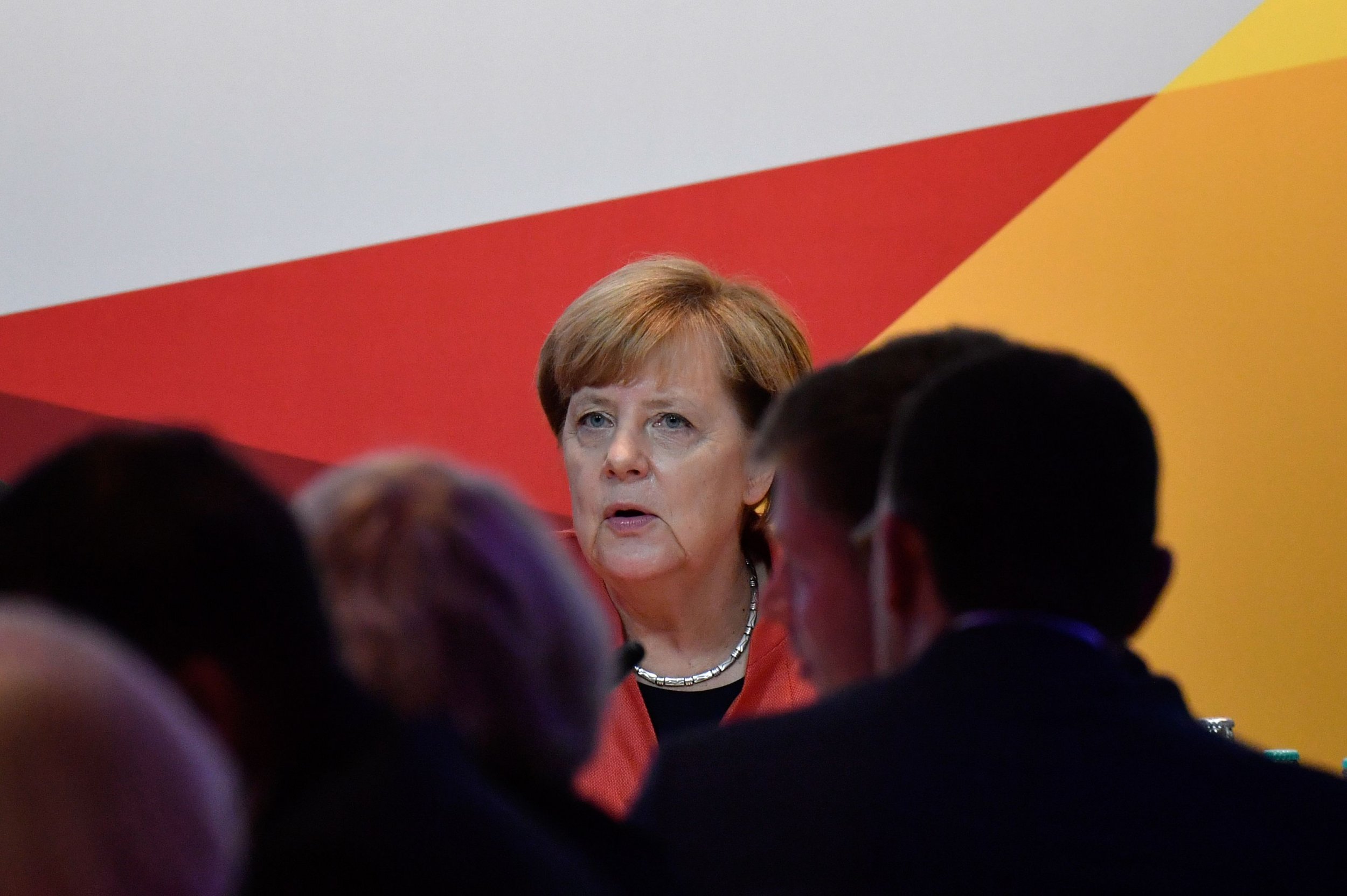
German Chancellor Angela Merkel is expected to speak with Russian President Vladimir Putin in order to find a peaceful diplomatic resolution to North Korea's increasing missile and nuclear defense tests, a spokesperson for Merkel said Monday, according to Reuters.
Germany does have diplomatic ties with North Korea, one of the most reclusive nations in the world, and Merkel's talk with Putin comes as the United Nations Security Council prepares a potential fresh round of sanctions after the country's sixth nuclear test on September 3.
"That is why we have offered to be helpful in the search for new ways to de-escalate the situation," spokesman Steffen Seibert said during a news conference.
"The only conceivable solution is a peaceful and diplomatic one. But to achieve such a solution, the pressure on North Korea must be increased."
While insisting a diplomatic route was the only real option, Putin himself said Tuesday that sanctions were essentially pointless, and that Kim Jong-un's regime would actually allow its people to "eat grass" or starve in order to fund its defense programs.
The talks come after Merkel said last month that Germany and the rest of the European Union should take a more active role in curbing the North's aggression and offered rare support for U.S. President Donald Trump, who has often alluded to a military conflict being the only answer to Kim Jong-un's weapons programs.
Before speaking with Putin over the phone, Merkel, who is running for re-election this month, had spoken with Trump, Japanese Prime Minister Shinzo Abe, French President Emmanuel Macron and South Korean President Moon Jae-in.
Merkel also told a German news outlet Sunday that she wanted to play a role in ending the North's missile and nuclear defense programs, saying the Iran nuclear deal made in 2015 could serve as a model, according to Reuters.
The deal, which came about under former President Barack Obama and saw Germany, the U.S., France, China and Russia unite to end a potentially dangerous defense program, lifted sanctions on the Middle Eastern power in exchange for reducing its use of nuclear materials and equipment for 10 years or more.
North Korea has tested more missiles this year than it ever has before. Its sixth nuclear test last week, claimed to be a hydrogen bomb, has led to fears that only a military confrontation can curb Kim's deadly programs.
Uncommon Knowledge
Newsweek is committed to challenging conventional wisdom and finding connections in the search for common ground.
Newsweek is committed to challenging conventional wisdom and finding connections in the search for common ground.
About the writer
General assignment reporter/writer covering politics, military, some sports and more. Previously at International Business Times as a breaking news and ... Read more
To read how Newsweek uses AI as a newsroom tool, Click here.








